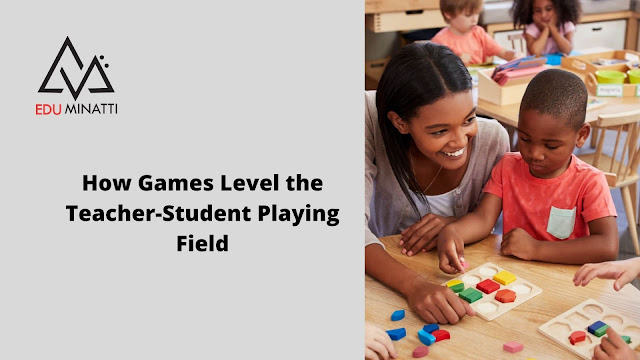How Games Level the Teacher-Student Playing Field
There are many theories on the most effective way to approach the student-teacher relationship. One in all the foremost common ways in which to think about this relationship is through the lens of how the instructor situates themselves and their experience inside the classroom. To make education interesting and easy, schools in Mussoorie provide efficient learning games to improve students’ skills.
A teacher who depends entirely on lecture and giving students facts and data directly may be mentioned because the Authority, while an instructor who prefers to show students through problems and activities might be referred to as The Demonstrator. people who opt to set up activities and have students go through problems on their own, is known as the help.
Each of these designs has its own execs and cons, and lecturers need to notice the method that matches their own teaching. However, no matter how lecturers approach their relationship to students inside the classroom, there's one dynamic that's very hard to eliminate and universally undesirable once it involves creating an excellent classroom environment: The adversary.
Understanding Adversarial Dynamics in the classroom
Ask an instructor what they have to do in their profession, and you'll get many heartfelt answers relating to helping students build confidence, gain skills, and achieve their long goals. Lecturers care about what happens to their students, which they understand that the link they create inside the classroom can be a huge factor in how well they're doing.
To maintain a healthy learning environment, students and teachers should have an amicable relation. Majority of the girls boarding school in Dehradun provide a good atmosphere for learning to make students feel comfortable.
For students, though, the relationship to education is often adversarial even once an instructor goes out of there because of building it more balanced. As a result of the teacher assigning a grade and evaluating the students' performance, they primarily perform a kind of gatekeeper. Even the most friendly, welcoming lecturers can have trouble breaking through the barriers of this perceived tension.
The role of games in building positive Teacher-Student Relationships
Playing games may be an excellent way to break through the perceived adversarial tension between students and lecturers. There are many benefits that games bring back to the classroom.
Benefit 1: Games are Fun!
First and foremost, the nature of games disarms the tension between teacher and student. A great deal of the adversarial nature of the classroom comes through formal evaluations, metrics-based grading, and whether or not or not a student will "pass" a selected task. Games offer lecturers the chance to look at students' progress and understanding without the pressure of these additional formal analysis ways. Students' associations with games are seemingly much more positive than their association with tests. Games are real markers of fun and play, and transferring them into the classroom helps to remodel the atmosphere.
Benefit 2: Rules create equality
When students and lecturers play games together, the foundations that bound the game together rework the relationship dynamic. The teacher is just about currently enjoying identical rules as a result of the students, making a way more equal relationship. Throughout a cooperative game, the student and teacher can presently get on the same team. Throughout a competitive game, the student has the prospect to win against the teacher. Every situation highlights equality that will carry over into other lessons and activities.
Benefit 3: lecturers shift perspectives
Another additional benefit of enjoying games in the classroom is that they'll alter lecturers to need a different perspective. Lecturers are primarily experts in the fields that they teach, and this might build the space between them and their student's understanding of the material a challenge to beat. It is typically laborious to remember what it's preferred to be a beginner. However, game especially if the teacher brings in new games that they have to find out aboard the students—allow students' strengths to shine and for lecturers to acknowledge what it's preferred to be the one learning something new or troubled to realize a goal. This might increase a teacher's empathy and understanding of their students.
Overall, bringing games into the classroom offers the only way to interrupt through the often unstated adversarial tension between students and lecturers. This might be significantly necessary once a new school year or semester begins and students are trying to work out what quite a relationship they'll have with a new teacher. Likewise, games are typically used to facilitate in rebalancing a schoolroom with a tense atmosphere. If an instructor needs to change the dynamic of the classroom, the activities were chosen, and the tone of the experiences are reaching to be wherever that modification is created. Bringing games into this necessary transition amount helps set the stage for a fun, engaging, and positive learning atmosphere.




Comments
Post a Comment